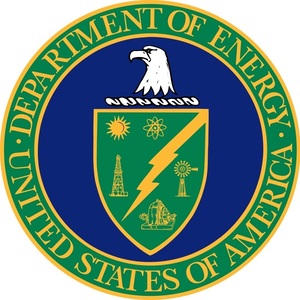DOE awards $20 million to help states deploy CCS

October 19, 2021
BY U.S. Department of Energy
The U.S. Department of Energy on Oct. 15 announced $20 million in funding to four projects working to accelerate the regional deployment of carbon capture, utilization, and storage (CCUS). The projects, representing all four corners of the country, are referred to as DOE’s Regional Initiatives to Accelerate CCUS Deployment—an initiative designed to identify and address regional storage and transportation challenges facing the commercial deployment of CCUS. Expanding the deployment of CCUS will reduce carbon dioxide (CO2) emissions from industrial sources and is a crucial component to achieving the Biden-Harris Administration’s goal of net-zero emissions by 2050.
“Every pocket of the country can and will benefit from the clean energy transition, and that includes our expanded use of carbon capture and storage technology to remove carbon pollution from fossil fuel use,” said Secretary of Energy Jennifer M. Granholm. “Through DOE’s Regional Initiatives projects, we are making sure states—especially those with historic ties to fossil fuel industries—can access technology innovations to abate carbon pollution and enhance their local economies so that no worker or workforce is left behind.”
The Regional Initiatives are university-led partnerships with academia, non-governmental organizations, industry leaders, and local and state governments. The initiatives identify and promote carbon storage and transport projects by addressing key technical challenges; facilitating data collection, sharing, and analysis; evaluating regional storage and transport infrastructure; and promoting regional technology transfer.
Each of the following Regional Initiative lead organizations were awarded approximately $5 million in DOE federal funding.
Advertisement
Advertisement
•Battelle Memorial Institute (Columbus, OH) is leading the Regional Initiative to Accelerate CCUS Deployment in the Midwestern and Northeastern USA project in 20 Midwestern and Northwestern states to review regional infrastructure and technical challenges to deploying CCUS in three sedimentary basins and the Arches province.
•New Mexico Institute of Mining and Technology (Socorro, NM) is leading the Carbon Utilization and Storage Partnership of the Western United States project in 15 Western states to focus on compiling geologic datasets in the region for storage resource analyses and identifying data gaps.
•Southern States Energy Board (Peachtree Corners, GA) is leading the Southeast Regional Carbon Utilization and Storage Partnership project in 15 Southeast states to identify at least 50 potential regional sites to evaluate storage resource potential and infrastructure needs.
Advertisement
Advertisement
•University of North Dakota Energy and Environmental Research Center (Grand Forks, ND) is leading the Plains CO2 Reduction project in 13 Northwest states and four Canadian provinces to identify and address onshore regional storage and transport challenges facing the commercial deployment of CCUS in an expanded region.
The Regional Initiatives continue the work of predecessor projects funded under DOE’s Regional Carbon Sequestration Partnership Initiative, supporting efforts to validate geologic storage technologies and support the commercialization of carbon capture and storage.
DOE’s Office of Fossil Energy and Carbon Management funds research, development, demonstration, and deployment projects to decarbonize power generation and industrial sources, to remove CO2 from the atmosphere, and to mitigate the environmental impacts of fossil fuel use. Visit the FECM website and sign up for FECM news alerts. For more information regarding the recipients and the projects listed in this announcement, visit DOE’s National Energy Technology Laboratory website.
Related Stories
SAF Magazine and the Commercial Aviation Alternative Fuels Initiative announced the preliminary agenda for the North American SAF Conference and Expo, being held Sept. 22-24 at the Minneapolis Convention Center in Minneapolis, Minnesota.
Saipem has been awarded an EPC contract by Enilive for the expansion of the company’s biorefinery in Porto Marghera, near Venice. The project will boost total nameplate capacity and enable the production of SAF.
Global digital shipbuilder Incat Crowther announced on June 11 the company has been commissioned by Los Angeles operator Catalina Express to design a new low-emission, renewable diesel-powered passenger ferry.
International Air Transport Association has announced the release of the Sustainable Aviation Fuel (SAF) Matchmaker platform, to facilitate SAF procurement between airlines and SAF producers by matching requests for SAF supply with offers.
Alfanar on June 20 officially opened its new office in London, further reaffirming its continued investment in the U.K. The company is developing Lighthouse Green Fuels, a U.K.-based SAF project that is expected to be complete in 2029.
Upcoming Events










